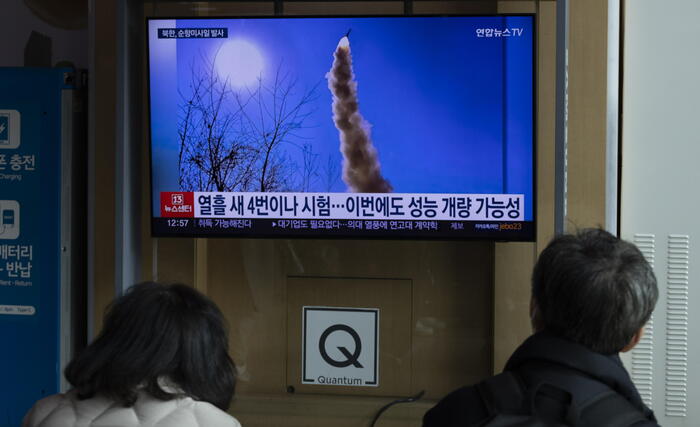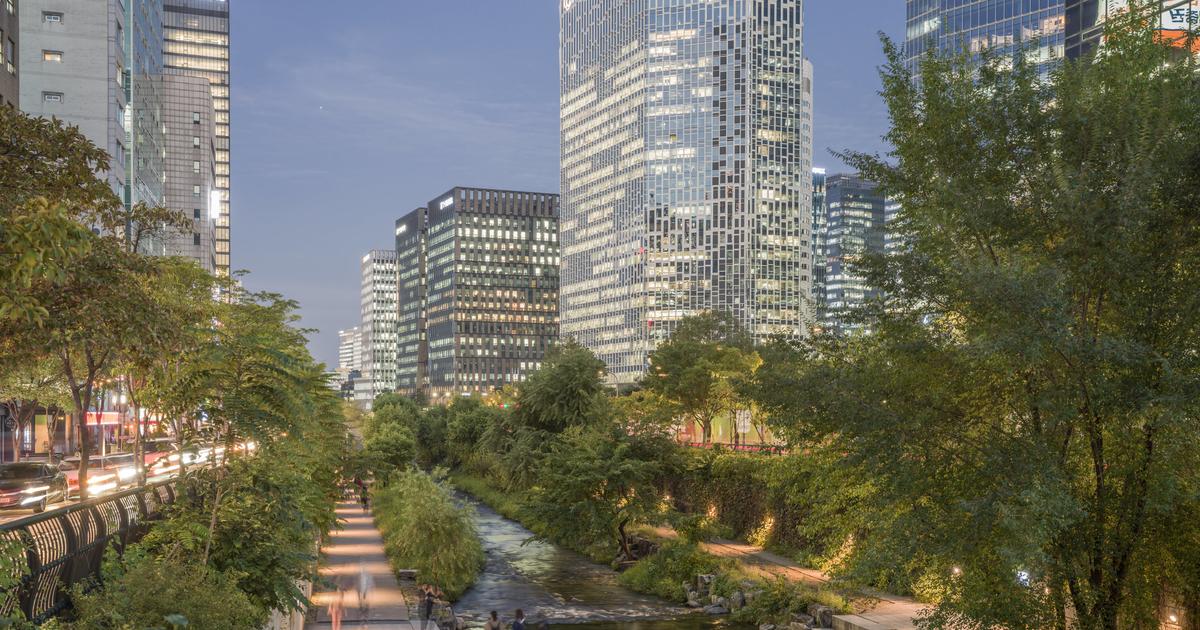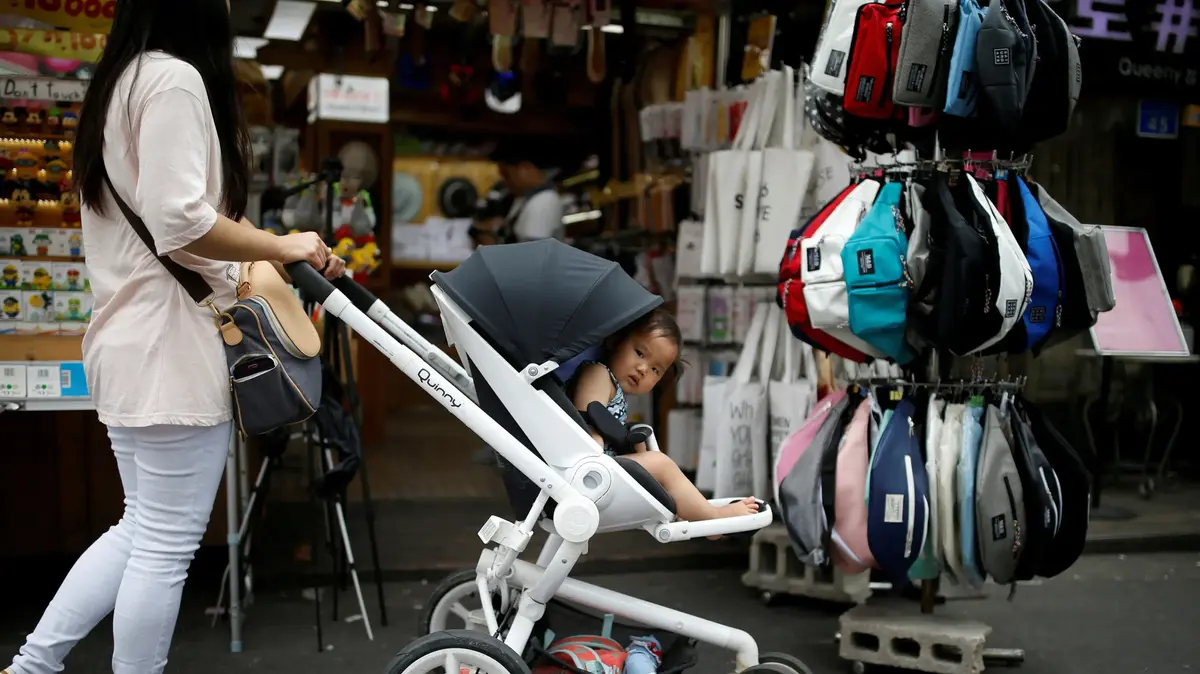In the effervescent streets of Seoul – to the rhythm of K-Pop, between food stalls (K-Food), and K-Beauty centers (Korean cosmetics) – some locals show that in South Korea they work piecework. Establishments where you can take an hour of siesta; Clinics specializing in sleep problems or cafes open 24 hours a day are some examples. "We're a society that's a bit addicted to coffee," jokes Park Mijin, 37, as he waits for a cut at Seoulism, one of Seoul's most Instagrammable coffee shops. It's Thursday and it's almost ten o'clock at night. "Koreans are known for doing things with rhythm," continues this socio-cultural guide. "It's what we call ppalli ppalli," he adds. With a broad smile, he begins the explanation of the concept: "Ppalli ppalli defines the fast pace at which our society moves. And it has its origin in the sixties, "he says in reference to the so-called Miracle of the Han River: the industrialization and development of South Korea in the middle of the last century.
If in 1953, after the Korean War, the country was one of the poorest on the planet, seven decades later, with 51.8 million inhabitants, it is the 13th economy in the world by GDP, according to the International Monetary Fund. Three places ahead of Spain. The ppalli ppalli was linked not only to that growth story, but almost to the founding of the country. It seemed that he did not admit question. Until now.
In March, a series of demonstrations swept through South Korea. They were especially intense in Seoul, a metropolitan city home to 20 million people, and Busan, to the south, on the coast. Together they account for more than half of the population. These protests, with a notable influx of young people, millennials and generation Z, had arisen in the heat of the rejection of the labor reform of the Government, led by the conservative Yoon Suk-yeol, of the People's Power Party (PPP).
The Executive had proposed a new rule to offer companies "a solution to the difficulties in meeting the stipulated deadlines." That solution was to increase the weekly working hours to 69, from the current maximum of 52. In exchange, the government plan, which had the approval of employers, offered either to charge them, or to be able to concentrate those extra hours at another time of the year and enjoy longer vacation periods. Almost an unreality in a country where, in 2020, only 4 out of 10 workers of South Korean companies were able to enjoy all of their days off, according to the Ministry of Labor of the Asian country, which EL PAÍS visits invited by Foreign Affairs.
Facade of a building in a residential neighborhood of Seoul. Alexander W Helin (Getty Images)
"[The rule] would make it legal to work from nine in the morning until midnight for five days in a row. There is no consideration for the health of employees or their rest," the Korean Confederation of Trade Unions (CSC) joined the criticism. "While men would work long hours, exempt from caregiving, women would be forced to do it," denounced the Union of Korean Feminist Associations (KWAU). Faced with the thrust and strength of the protest, the Executive stopped the regulations and opened up to "reconsider" them. In addition, he said he should look for how to better communicate with citizens, "especially with generations Z and millennials," according to the press secretary of the Conservative Government.
"I don't trust it. I'm afraid they're going to try to pass the reform again," said Lee Yo, a 31-year-old journalist. He speaks from a bar near the capital's bustling Itaewon neighborhood. He comes from a company dinner that his boss had organized and to which he has gone "out of obligation". He describes the custom as outdated: "In Spain you do it too?"
The journalist believes that the protests against the labor reform have achieved unprecedented success, but adds that the president has room and mandate ahead of him; The next elections will be in 2027. Lee also sees that underlying this conflict is a generational clash: "My father doesn't think reform is so bad." And a break with that culture of ppalli ppalli. "We are very grateful to previous generations for what they have done. They have built our country with a lot of effort. But we don't want to live like this," he adds.
Young women during a K-Pop concert in Seoul on April 30. JEON HEON-KYUN (EFE)
In 2021, South Koreans worked an average of 1,915 hours, according to the Organization for Economic Cooperation and Development (OECD). That's 199 hours more than the average of countries studied by the agency; and the fifth that dedicates more hours to companies. Germans, for example, worked an average of 1,349 hours that year; the Spaniards, 1,641. In addition, the lack of time distresses more than half of South Koreans (54.4%), according to the 2019 Time Use survey, which the South Korean government prepares every five years by interviewing about 30,000 people. 52.2% of these also called for a reduction in hours spent at work.
Currently, the working day in the Asian country can not exceed 52 hours per week: 40 routine plus 12 extraordinary. This was established in 2018 by a government regulation, then led by the center-left Democratic Party. "Before [that rule], presenteeism was much stronger," Ms. Park recalls: "You couldn't move from your chair until your superiors left." The new law was accompanied by inspections of companies and a watchful eye for non-compliance.
Conciliation impossible
"It was an advance that we have now seen in jeopardy," summarizes journalist Lee. "Now they will try to go for the 60 hours," he adds. But he regrets that if you work so much it is "very difficult" to have a family. He has no children; He is not considering it right now. Like her, many South Koreans conclude that they cannot reconcile family and profession. And they end up giving up motherhood. South Korea's fertility rate is the lowest in the world: in 2022 it was 0.78. The birth rate has been falling for eight years and in 2020 the country registered for the first time more deaths than births. Last year, there were 249,000 births and 372,800 deaths.
"Generations of young Koreans have reasons not to start a family, including the overwhelming costs of raising children, prohibitive housing prices, poor job prospects and grueling work schedules," summarizes Hawon Jung, author of Flowers of Fire: The Inside Story of South Korea's Feminist Movement. . The activist and writer emphasizes in her essay that "it is women who, in particular, have tired of the impossible expectations that this traditionalist society has placed on mothers. So they're quitting."
Nightlife in the Isadong area of Seoul. Didier Marti (Getty Images)
In their rejection of labor regulations, young people have argued risks to their health – linking it to the country's high suicide rates, stress or gwarosa, the Korean term that defines death from excessive workload – as well as a harmful effect on the birth rate. The Government, for its part, has tried to isolate the problem from its proposal. "The link between working day reform and low birth rates lacks logical justification," South Korean Labor Minister Lee Jung-sik posted on Twitter.
Jeong Dong, 26, also has no plans to have children. Arrive in downtown Seoul with a small, electric, two-seater car. "It's new, made in Spain. I just changed it because that's how I save. Now I only spend about five euros a month," he says proudly of his vehicle. He has been part of the protests and says he is willing to take to the streets again. He is now doing military service. He does office work, not field work. "I've been lucky," he explains, "I got injured playing football and I was exempted from instruction." He can combine the military with another job and therefore considers himself "lucky": "So I save a little," he says. He lives with his parents, but wants to travel to Europe. "In Korea, work is very stressful and living is very expensive."
Many South Koreans share the young man's view. The Korea Institute for Health and Social Affairs (KIihasa) conducted research in the autumn of last year on the balance in South Korean society between personal and work life. To do this, they conducted interviews with 22,000 citizens. Asked how many hours they would like to work, they answered on average 36.7 a week. When analyzing the data, one of the conclusions of the study stated that older generations tolerated longer hours. And he confirmed that "the younger, the less time they want to devote to work." They are less adept at ppalli ppalli.
Follow all the international information on Facebook and Twitter, or in our weekly newsletter.
Subscribe to continue reading
Read without limits
Read more
I'm already a subscriber









